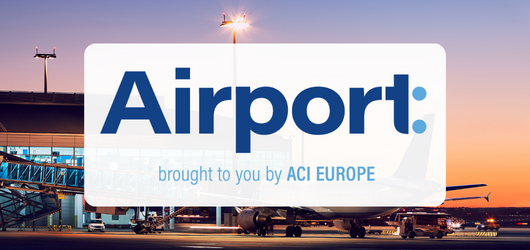Open letter to EU Transport Ministers and the European Commission

Open letter to EU Transport Ministers and the European Commission
COVID-19: European Aviation Relief Programme
Dear Ministers, Dear Commissioner,
I am writing to you ahead of the extraordinary meeting of EU transport ministers of 18 March.
The COVID-19 pandemic is impacting European airports in a dramatic way, with their situation deteriorating by the day. The absolute priority for them remains the protection of passengers and staff along with cooperation with public health authorities and industry partners.
Preliminary figures show that passenger traffic at EU/EEA/Swiss and UK airports decreased on average by -54% last week (9 to 15 March), down from -24% the preceding week (16 to 22 March). We now estimate that these airports will collectively lose over 100 million passengers in the first Quarter of this year, compared to a business as usual scenario.
However, the situation keeps worsening. As more countries both in the EU and beyond are adopting travel & flight bans, the proposal for a ban on entry into the Schengen area and with most European countries likely to go into lock-downs similar to Italy, airlines are further accelerating drastic capacity cuts and route cancellations to limit their financial exposure. Some are even shutting down all operations.
This means that Europe’s airports are now bracing for a near total collapse of their traffic, connectivity and revenues. Indeed, the dramatic state of Italian airports gives an indication of what lies ahead for airports across the continent. Over the past days, passenger traffic at Italian airports went into a free-fall, decreasing by more than -90%.
For airports, falling passenger traffic immediately translates into lost aeronautical and non-aeronautical revenues which they rely upon to operate, maintain and develop their facilities. For now, ACI EUROPE’s revised forecast shows Europe’s airports losing €2 billion in revenue just in the first Quarter of the year (before even factoring in the ban on entry into the Schengen area). These losses will further deepen in the coming months.
All European airports are currently rushing through extensive cost containment measures including unpaid leave for staff, temporary layoffs, corporate travel restrictions, ending consultancy and external contracts, closure of terminals where technically possible, reduction and suspension of investments.
Despite this, airports’ ability to mitigate revenue losses tend to be limited compared to other businesses given that:
- Their cost base remains largely unchanged, as 80% of airports’ operational costs are fixed. Airports cannot relocate their assets to other markets, and they need to maintain most of their facilities open at all times – as they operate critical infrastructure.
- Airports must keep servicing their debt – with capital costs typically accounting for 30% of their total costs.
The unprecedented shock to their traffic and revenues means that several airports are facing cash flow issues – and that an increasing number of them will face such issues in the coming weeks if the situation continues.
These cash flow problems risk becoming systemic for Europe’s airports and raise issues of business continuity, which must be addressed by the EU.
On that basis, the European airport industry urgently calls on the European Commission and EU/EEA States and Switzerland to adopt supportive measures targeted at:
- Safeguarding airports’ operational & business continuity over the coming weeks and months by providing extraordinary and urgent funding and cash flow resources where needed – not least to ensure those air services deemed essential under the current circumstances. This funding needs to be available under similar conditions as those that will be considered for airlines.
- Preserving airports’ economic and financial resilience so as to allow airports to return to normal operations as soon as possible and support the recovery of the wider economy. Airports act as engine of local and regional economic growth and employment. Many of them are indeed the largest employment site in their region and/or country. This means that their own standing and capabilities directly support that of their communities. In this regards, it is essential for them to preserve their long-term strategic investment – including those relating to decarbonization efforts.
These measures should be part of a European Aviation Relief Programme detailed in the Annex below.
Annex: COVID-19 & Aviation - European Aviation Relief Programme
I remain at your disposal for any further information.
Yours sincerely,
Jost Lammers
ACI EUROPE President


